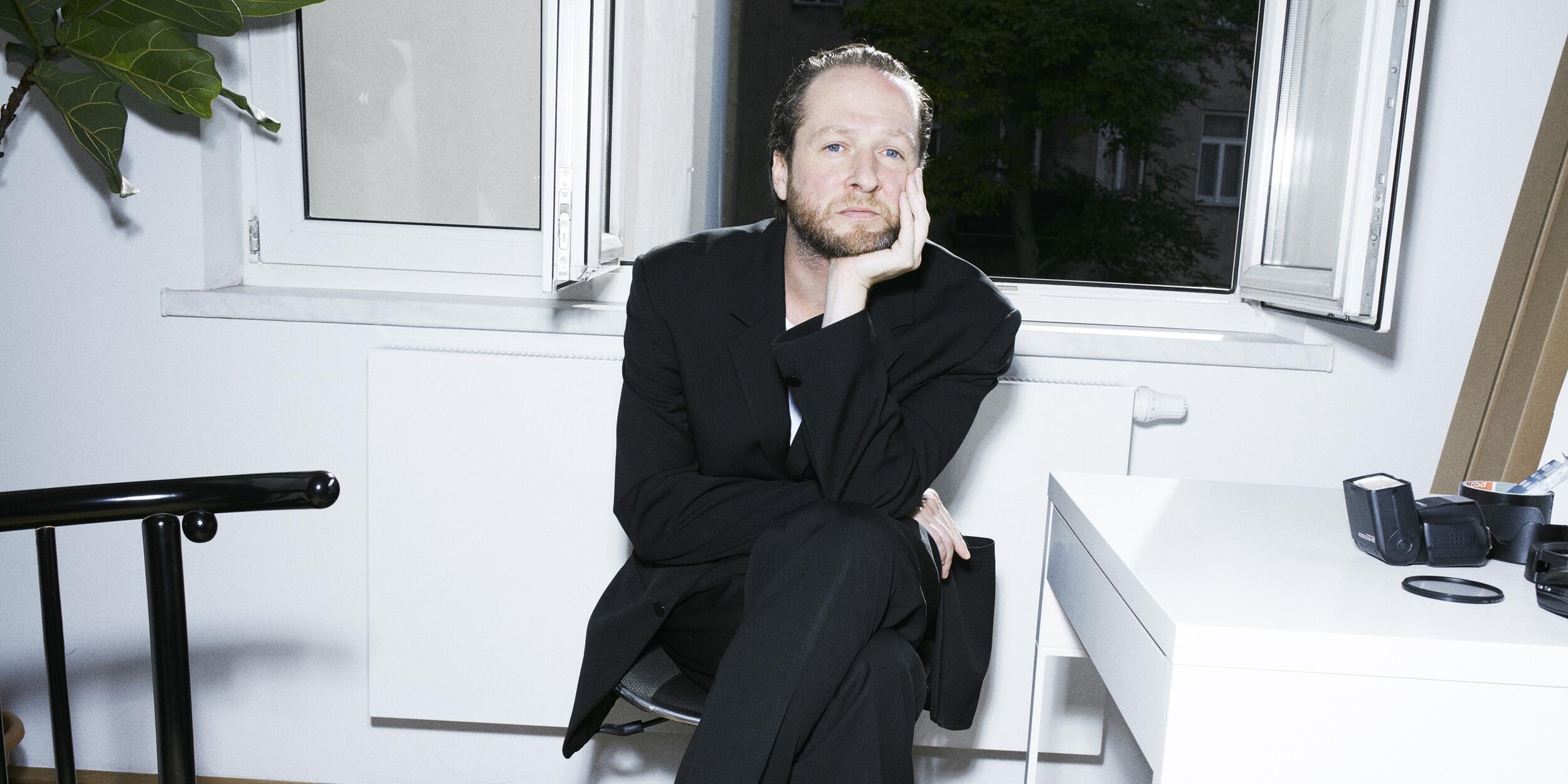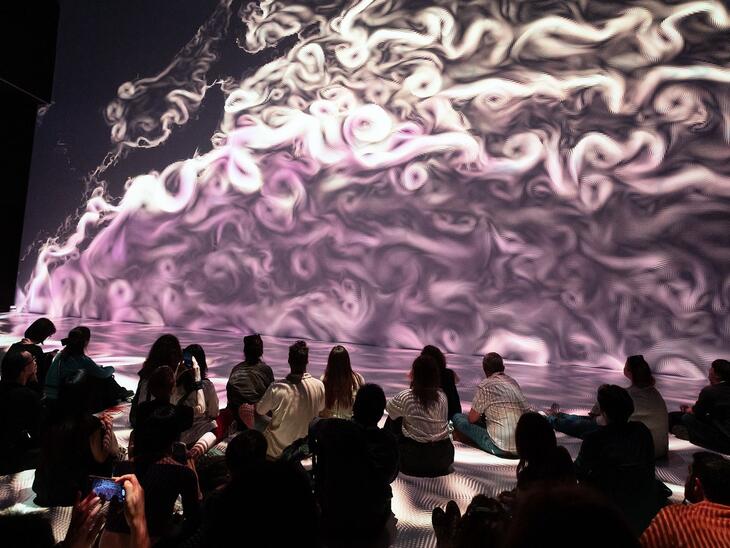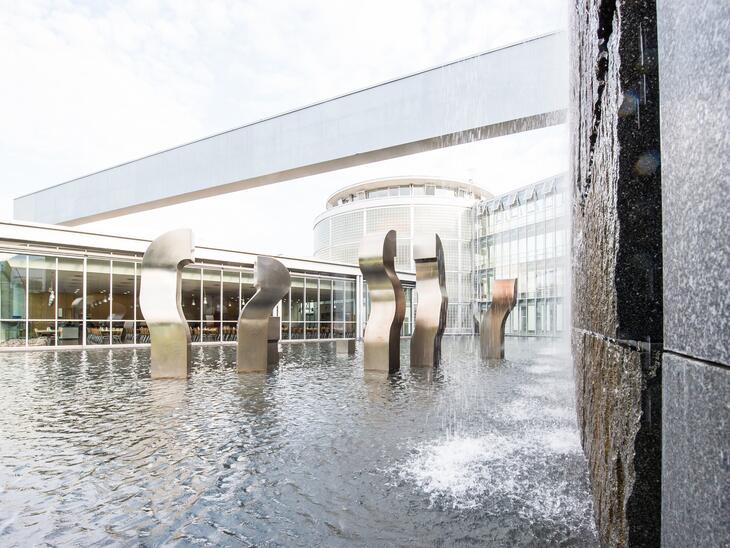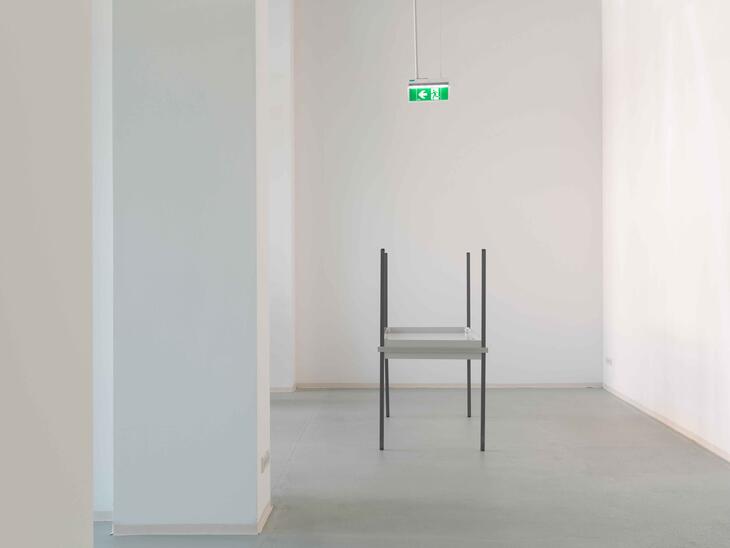You specialise in cultural and media studies. What significance do these sciences have for society today?
Cultural and media studies are among the most important subjects currently available because they have an impact on all areas of life. We have not only been living in a reality of media technologies since today. This affects us as scientists, as artists, but also as bakers or locksmiths. It is therefore important to develop a way of thinking that takes a critical look at where things come from and, of course, where they lead. And ideally, science can intervene in processes in a formative way.
Your transcultural research area and critical perspectives on technologies cover a large area. That almost sounds like a balancing act.
These topics belong together and you can't think and deal with them without each other. In this case, transcultural means that we not only look at how certain developments take place or have taken place in different cultures, but also how they are dealt with in different cultural strata, in high culture, in subculture or even in a fungal or bacterial culture or different areas of art. It is about a three-dimensional view of this subject area, because media technologies are only relevant in their execution. We use them to the same extent that they use us. This understanding requires a very comprehensive view.
How did you get into your field of research and what is so exciting about it?
I've always been interested in science and art, including sitting between the chairs. At the beginning of my studies in Berlin, I initially focussed on cultural studies and found a very diverse study environment. My mentor and later boss Friedrich Kittler was involved in media studies even before the subject existed as such. Born in the late 1970s, I belong to an ‘in-between generation’ in which some grew up with computers and some without. Me without. I got my first computer when I was 19. I saw myself as a person of language and literature, had no idea about computers, but had the ‘stupid idea’ of studying computer science in order to acquire this knowledge. It didn't suit me at all, but I completed the degree. I now try to teach students that interdisciplinary study or transdisciplinary work is the best thing you can do. The necessary change of perspective gives you a much more vivid picture. I learnt technological and scientific methods on the one hand and critical and artistic thinking on the other.
You work for art institutions such as the Haus der Kulturen der Welt (HKW) Berlin, Vitra Design Museum and the Museum of Applied Arts Vienna, most recently as guest curator of the Vienna Biennale 2019 with ‘Uncanny Values. Artificial Intelligence & You’. What does your work involve?
I was guest curator for the exhibition at the MAK in 2019, and two years earlier I was a scientific advisor for the ‘Hello Robot’ exhibition, so I got to know the museum and worked closely with the curator Marlies Wirth. We had enough time to prepare the exhibition ‘Uncanny Values’ on 1400 m2, it was a great collaboration. We were able to commission works that then travelled around the world. We wanted to do something that was really unseen at the time: a big museum show about AI and art. We didn't just try to show what great things you can do with AI, but also those artists who were already taking a critical look at this topic at the time. The question was also what historical positions were needed, how this art could be made understandable and how the technology could be unveiled. On the other hand, there was a clear educational mission. We organised a large educational section in which we presented around 30 topics as clearly as possible and opened up a cosmos in the form of a long wall installation. We wanted to break down a barrier to give people of all ages access to the topic. That worked very well.
From Berlin and Vienna back to Salzburg. Do you have a special connection to Salzburg?
There are several. My mother comes from Bad Ischl, I have family on Lake Wolfgang and my soon-to-be wife, Mavie Hörbiger, played in Jedermann for six years. First the ‘Werke’, then as the first woman in the role of the devil. That's why we spent our summers here for six years. That means I've had a lifelong connection to the region and I don't have to arrive first, I already feel very much at home here.
What will be the focus of your work in the coming years?
The exciting thing is that a change is currently taking place at the Mozarteum University and, alongside the time-honoured subjects in which the Mozarteum is a world leader, space is being created for something new. Something new that is not in opposition to classical music, but is intended to expand it. At the Institute for Open Arts, where we want to further develop a very broad concept of art, the master's programme ‘Open Arts ’* will be introduced next year. It follows the idea of developing a degree programme that responds to the complexities of this world with complex skills. It will teach artistic practice and theory as well as critical-scientific and technological methods in order to understand how the world works, but also to be able to intervene in it in a transformative way. We want to show that there is a responsibility in the complexity of the world, no matter what kind of artist you are. Art is a mediator, whether intentional or unintentional. We are currently building the ‘X-Reality-Lab’ and, as part of this, a data arts forum, with the task of opening many doors both inside and outside the Mozarteum or finding them in the first place. There is much more permeability and interesting opportunities for dialogue than you might think. We have a lot to say and are not only the training centre for the world's top musicians, but also a very interesting place for these discourses and those we don't even know yet.
What media future is already on the horizon?
We want to bring internationally networked research projects to Salzburg in the near future. There are already many discussions about this. AI is currently a big topic, but AI will soon be as normal as the internet already is. There will be new topics again. That's why it's important to develop a cultural, but also a scientific-artistic sensitisation that allows us to sense what's coming next, which developments we can and must anticipate or what we want to invent ourselves. Hopefully at some point we will also be able to enter into technology development processes from the artistic side.
(First published in the Uni-Nachrichten/Salzburger Nachrichten on 14 December 2024)
*subject to Senate resolution




